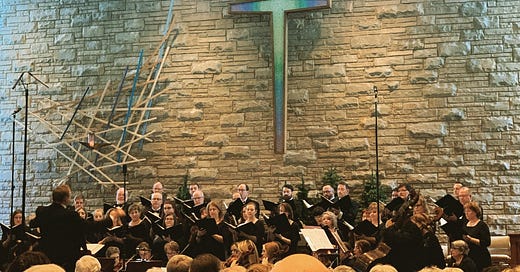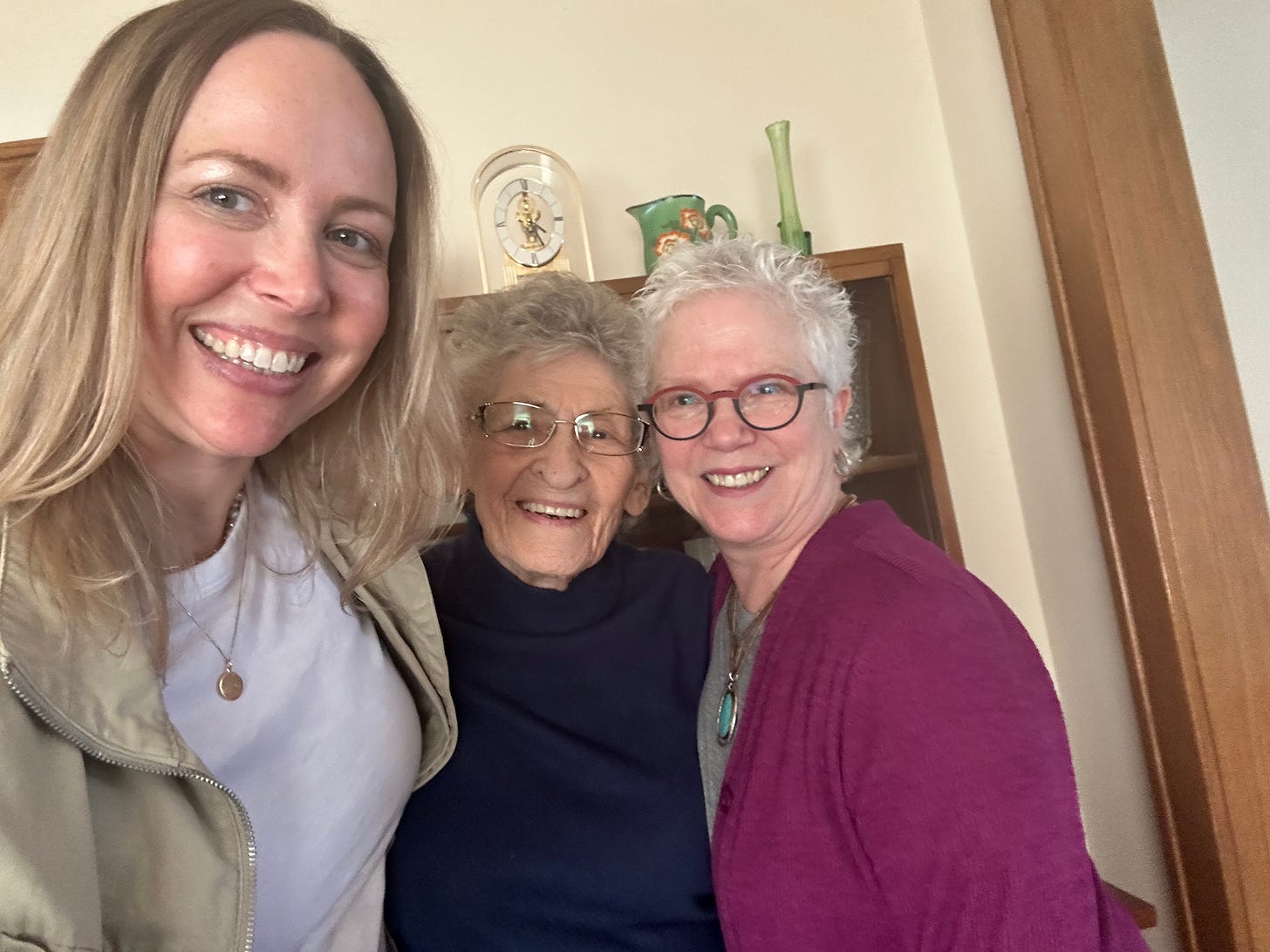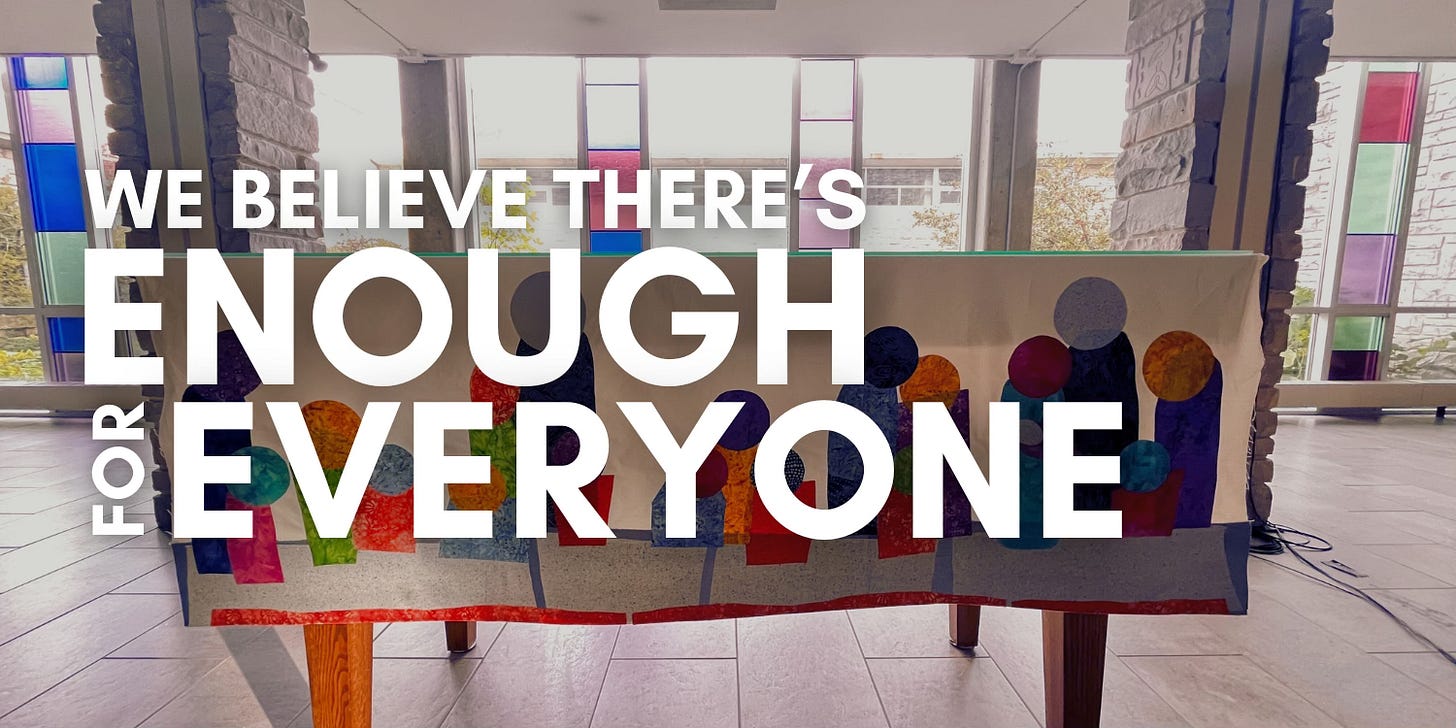When I first became an ordained pastor, back in 2013, I carried the mantle of my ordination heavily, somewhat uncomfortably.
I owned a clerical shirt, just one, and I dutifully donned my long off-white robe for most Sunday morning worship services. But I rarely claimed my ordination status publicly. “The Rev.” seemed a weighty title.
There was something else, too. When I met people, I felt the need to explain myself properly, and I’d go into conversations with strangers expecting them to challenge my very right to be a minister of the gospel, my being a woman and all.
I’m a peacemaker by nature; I get anxious in heated conversations, and so I didn’t want to upset anyone. I’d just keep my profession quiet. Wear it lightly. Sometimes I said I “worked at a church,” even though in my first call in the Chicago suburbs I was a solo pastor.
I watched female colleagues of mine who were much more confident about their status as ordained pastors. They proudly wore their clergy collars, many of them coming up with dresses or outfits that incorporated the collar in an overtly feminine way.
I guess maybe I wasn’t confident enough to do so at the time. I never wanted to make anyone feel uncomfortable, not the conservative Evangelicals with whom I’d always spent time, not the men who’d gone before me in ministry, not my own family members who came from a variety of Christian traditions, many of which didn’t ordain women.
A few years into my ministry, though, I realized that my pastoral identity wasn’t something I could so easily take off and put back on, like an outfit or a shirt. Being called to be a minister of the gospel was instead a central piece of who God had made me to be.
When I started to work more in the realm of public theology, publishing a book on religion and politics and appearing occasionally on TV or radio or popular podcasts, writing articles for national news outlets, I recognized that the number one piece of criticism I received generally had nothing to do with the substance of my work. Instead, again and again people shamed me for who I was, that simply because I was a woman I had no right to claim status as a pastor. They called me a demon, a false prophet, or worse.
Those criticisms and critiques always stung, especially in the early years of mothering two young boys and feeling like there was never enough of me to go around: at church or at home. In my most stress-filled moments, I wondered if the critics were right. Maybe I couldn’t hack it. Maybe this wasn’t meant to be.
At the same time, in those years after publication of my first book, I found again and again that it was my work as a local church parish pastor that grounded me in all the public writing and speaking I did on behalf of the gospel. From 2019-2023, in those years of global pandemic and national unrest, in those years of the increasing politicization and radicalization of white American Christianity, I served as part-time solo pastor of a wonderful little church in rural Minnesota.
I will always remember one afternoon, driving out West on Highway 212, talking on the phone to the pastor who had supervised me on my pastoral internship in Las Vegas. He too was an “outside the box” Lutheran pastor, one who challenged ministry norms and came around to progressive social theology after a background in a more conservative Christianity.
We shared together about the importance of the local church and our work as pastors there. About how the congregation was the place where you learned if your theology made any sense at all, and where you learned to put love and faith and truth into real practice.
In January 2023, with increasing commitments to my writing and speaking work and moving toward a second book, I had to say a sad farewell to my church family in rural Minnesota. And then again, as I had many times in my career in ordained ministry, I wondered how to fit it all together again. I went On Leave from Call.
A scene from Lake Nokomis Lutheran Church - Minneapolis
Sometimes it’s easier to explain how things fall apart than to explain how things all come together again. And as I’m about to share about my next pastoral calling in ordained ministry, I find myself hesitant - almost like I don’t want putting it into words to spoil the miracle of this moment, of all of these moments.
The truth is that each church congregation that I’ve served as Pastor is like a tiny little miracle, the survival of the gospel against all odds in all sorts of different places, from Las Vegas to suburban Chicago to Orange Country, Calif., to the Twin Cities suburbs to McLeod County, Minn., to Minneapolis.
In my denomination, the Evangelical Lutheran Church in America, we are called explicitly by congregations, which means that each time a church would like to call a new pastor, the entire congregation holds a vote. Which means that then you, as the pastoral candidate, get to wait by the phone to see what happens with the vote.
It’s a vulnerable and humbling feeling to receive the assent of a local church, and maybe for me, as I’ve spent so much times in parts of Christianity that don’t affirm women’s right to be pastors, that sense of honor and responsibility to be called as Pastor tweaks a vulnerable and central part of my soul.
I guess I’ll stop burying the lede here.
Earlier this month, I began a new permanent pastoral call to Lake Nokomis Lutheran Church in Minneapolis as Pastor for Visitation and Public Theology.
After seven years of living in Minneapolis, this is my first permanent call in the Minneapolis-Area Synod of the ELCA. That long delay is due to the fact that I have long been looking for a very non-traditional pastoral role, one that will be part-time and will affirm my calling to writing and speaking outside the church as well. Most churches are looking for full-time pastors, and they’re concerned that pastors who have outside vocations won’t be devoted enough to the work of the local church.
I am so grateful to Lake Nokomis Lutheran (and lead pastor Sara Spohr) for recognizing and affirming my calling to write and speak as a public theologian. My call paperwork recognizes that much of the work I do in public theology will take place beyond the scope of Lake Nokomis Lutheran Church, even as in that work I will also serve as a representative of their congregation.
Additionally, and no less importantly, as visitation pastor for Lake Nokomis, I will be able to fill a hole in my life and ministry that has existed since leaving my previous church in early 2023.
As visitation pastor, my primary responsibility will be in the area of pastoral care. I’ll visit church members who are elderly and/or ill, in the hospital or at home, and I’ll share monthly worship services with a nearby senior living community that’s connected to the congregation.
I will coordinate in this work with the other pastors and with Lake Nokomis’ longtime parish nurse, Barb, who has been doing the work of a visitation pastor as well for the past several years.
I’ve just begun to meet people at Lake Nokomis, and to build relationships with those who I will be visiting. I’m struck again and again by a few things: 1) how different my pastoral vocation looks than what I’d initially expected in seminary and 2) how grounding and important it is to spend time with seniors, in particular.
When I first started in ministry, I was still heavily influenced by the Church Growth movement and by popular American Evangelicalism. I envisioned myself preaching on stages and kept detailed spreadsheets of attendance and giving patterns. Most of the most-popular pastors in this genre proudly joked about how they “weren’t good at pastoral care.” Somehow, for these popular celebrity male pastors, they thought the work of the everyman pastor, visiting and praying with people in need, was beneath them. Maybe it struck them as too feminine, meek and gentle, leaving beside the fact that Jesus himself visited his friends when they were sick, prayed with them, and sometimes performed miracles in the midst of his ministry of pastoral care.
Still, early on, I guess I didn’t think that pastoral care would be so central to my ultimate calling as a pastor. I was focused on preaching and teaching. But as Christian Nationalism swelled in America, and I found my research and voice were needed more on a public platform than inside church walls, I realized that my pastoral calling would be focused then not on proclamation (as that became something I did more often outside the church, or as a guest preacher) but instead on the humbling and sometimes-unsung work of pastoral care and visitation.
I learned that pastoral care forms the foundation of trust and relationships within the local church, and I learned that without that foundation, it’s impossible for churches to carry on broader missions or initiatives, especially in the areas of social justice ministry and witness.
I learned that pastoral care would also mean caring for the part of me, too, that craves nurturing and genuine connection, and listening to the wisdom of my elders.
My first visit last week, with Mildred and Parish Nurse Barb
My work at Lake Nokomis Lutheran in Minneapolis is just beginning. But I wanted to share with you just how important it is to me, and how my pastoral identity is equally shaped not only by public proclamation but also by the internal pastoral care work of the local church.
It is for these reasons that today I am proud to boldly proclaim my status as THE REV. Angela Denker.
P.S. …
A Few Notes:
First, a huge THANK YOU to all subscribers. I get a little email notification every time someone signs up, and every time I get one, I feel joyful and honored that you want to spend part of your day with this community. I mean it when I say: “I’m listening,” to you as well, and please don’t hesitate to share with me your thoughts + ideas for what you’d like to read in this space.
To PAID SUBSCRIBERS: I am humbled and honored that you’ve chosen to spend part of your limited budget on this newsletter. To borrow words from another newsletter I love, you are directly funding freelance journalism with your subscription, and I have to thank you more than ever for your continued support. Our world’s media and journalism is in a state of crisis, with fewer and fewer billionaires in control of global news outlets, and journalists being either laid off or threatened with violence for their work every single day; with fewer and fewer newsroom positions paying a living wage. I pledge to you to steward your paid subscription faithfully + use it to support honest, hard-working, and LOCAL journalism. One of my goals in this first year is to open this newsletter to other journalists, and pay them a fair wage for their work.
THANK YOU for your support. If you’re not a paid subscriber, please consider becoming one.
On free vs. paid-subscriber posts only: My plan right now is that the Friday + Sunday posts, focusing on news + spirituality, in that order, are available for subscribers only (I am going to continue sharing a sample, with a line where the paywall cuts off for our paid subscriber community). My plan is that the Tuesday blog-style posts will always be free, to enable as much access as possible, while creating a smaller and more intimate experience for paid subscribers, who are also able to comment and share in community in fuller ways.
Free Trial: Substack always offers a free week-long trial subscription to this newsletter, so you can get a taste of the Friday + Sunday posts and see if you’d like to subscribe!
If a paid subscription is a hardship for you, but you’d like access to the Friday + Sunday posts: PLEASE do not hesitate to reach out. I will be happy to provide a complimentary subscription for you.







May the Lord bless you as you pastor others and us!
Congratulations to The Rev. Angela Denker!! God bless your ministry of the Gospel of God's love in Jesus to the good folks in south Minneapolis and beyond! It's a beautiful piece of wisdom and grace to affirm pastoral care as a foundation piece in God's work in the world- including seniors! I think of Dietrich Bonhoeffer who also affirmed and practiced the "care of souls" throughout his short life and ministry as a "public theologian", even in prison. I hope you and your family will grow and thrive in this next adventure of faith.